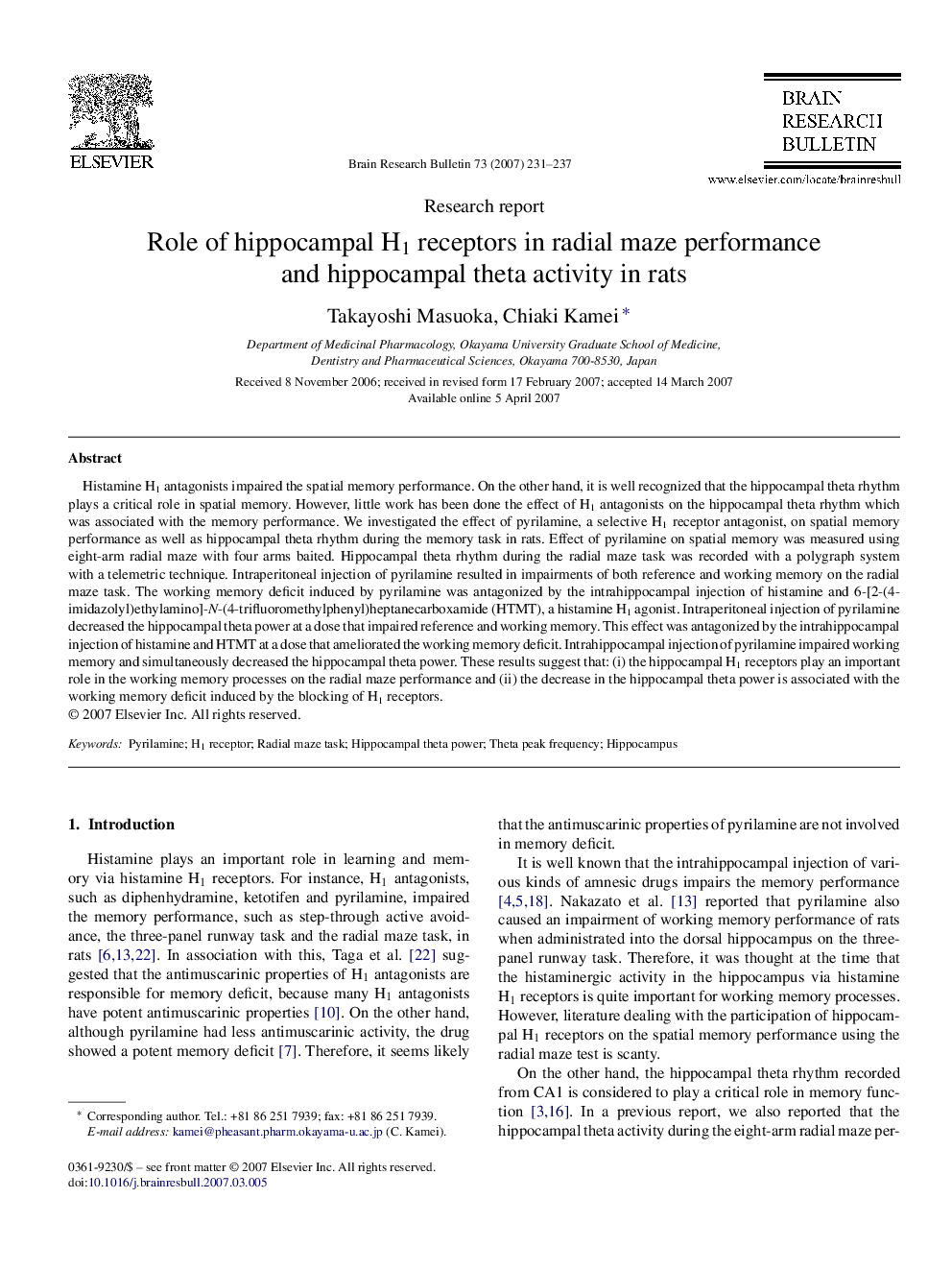| Article ID | Journal | Published Year | Pages | File Type |
|---|---|---|---|---|
| 4320171 | Brain Research Bulletin | 2007 | 7 Pages |
Histamine H1 antagonists impaired the spatial memory performance. On the other hand, it is well recognized that the hippocampal theta rhythm plays a critical role in spatial memory. However, little work has been done the effect of H1 antagonists on the hippocampal theta rhythm which was associated with the memory performance. We investigated the effect of pyrilamine, a selective H1 receptor antagonist, on spatial memory performance as well as hippocampal theta rhythm during the memory task in rats. Effect of pyrilamine on spatial memory was measured using eight-arm radial maze with four arms baited. Hippocampal theta rhythm during the radial maze task was recorded with a polygraph system with a telemetric technique. Intraperitoneal injection of pyrilamine resulted in impairments of both reference and working memory on the radial maze task. The working memory deficit induced by pyrilamine was antagonized by the intrahippocampal injection of histamine and 6-[2-(4-imidazolyl)ethylamino]-N-(4-trifluoromethylphenyl)heptanecarboxamide (HTMT), a histamine H1 agonist. Intraperitoneal injection of pyrilamine decreased the hippocampal theta power at a dose that impaired reference and working memory. This effect was antagonized by the intrahippocampal injection of histamine and HTMT at a dose that ameliorated the working memory deficit. Intrahippocampal injection of pyrilamine impaired working memory and simultaneously decreased the hippocampal theta power. These results suggest that: (i) the hippocampal H1 receptors play an important role in the working memory processes on the radial maze performance and (ii) the decrease in the hippocampal theta power is associated with the working memory deficit induced by the blocking of H1 receptors.
